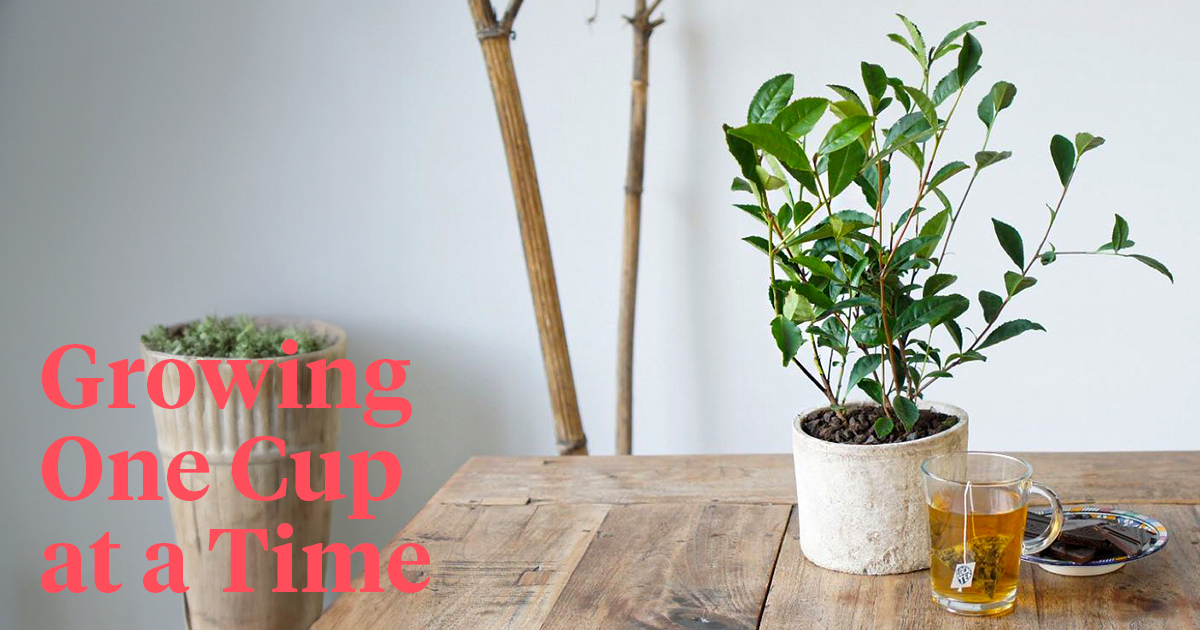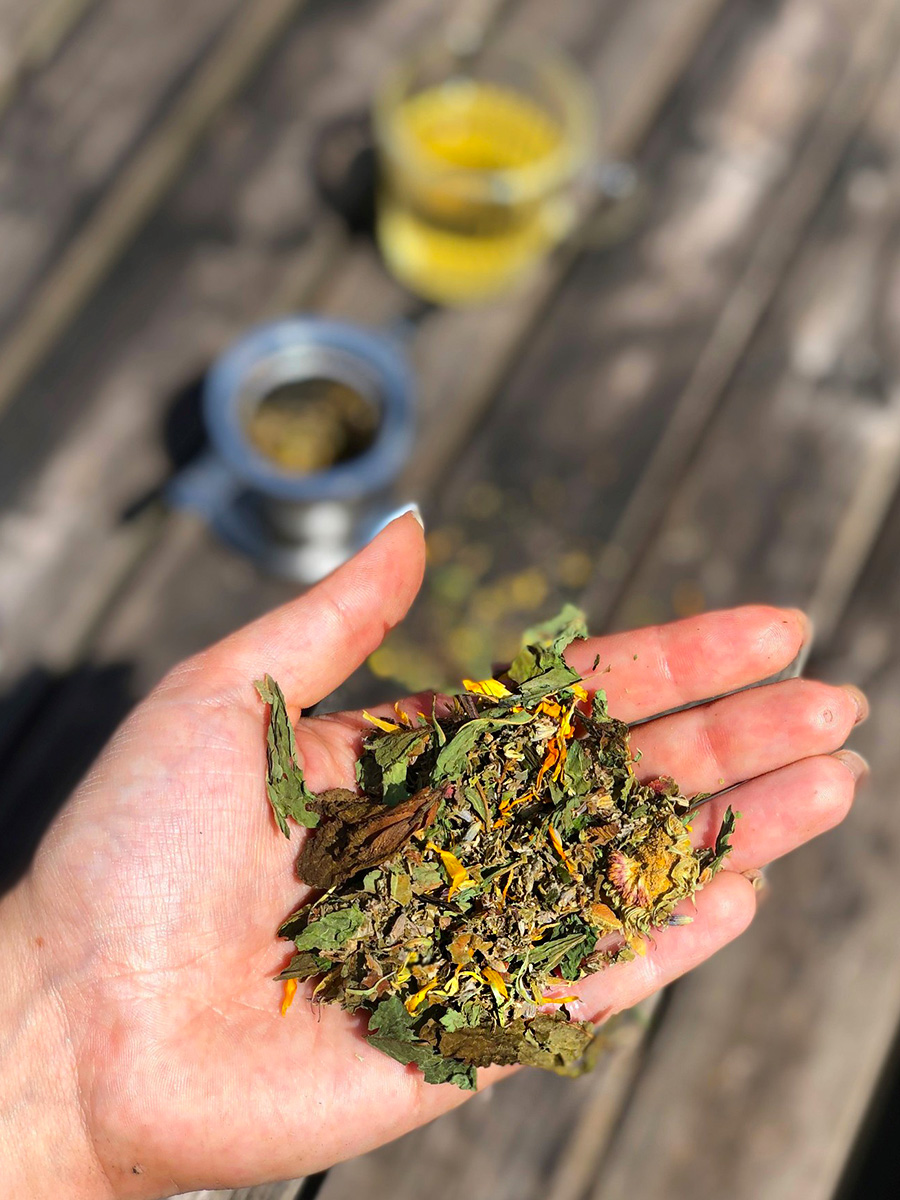LocalTea is a very special tea brand from a very surprising source. You would expect that tea is only produced in established Asian countries such as China, Japan, or India. LocalTea is different, it comes from the town of Zundert, in the Netherlands. So we're talking about tea from Dutch soil here!
When you think of tea, the Netherlands may not be the first place that comes to mind. However, nestled in the picturesque Dutch countryside, one stone's throw from the Belgium border is a hidden gem that's changing the way tea production is perceived. LocalTea is a family-owned tea farm, a testament to the dedication and passion for tea that goes far beyond just a hot beverage. Take a look inside this forward Dutch tea plant nursery.
The Dutch Difference
LocalTea is more than just a tea farm; it's a labor of love. Love for tea, naturally, and love for our environment. The trigger to start this company in 2016 (initially under the name Tea By Me) was the dream to be able to shorten the supply chain for tea by not having to import this from the other side of the globe, and in the meantime to be able to have full control of the quality of the crop and produce. So, after a lot of testing plants in all kinds of conditions, it finally worked. There was a way to let the Camellia sinensis, a.k.a. the tea plant' survive and thrive in Dutch soil. The first and most crucial hurdle was passed.
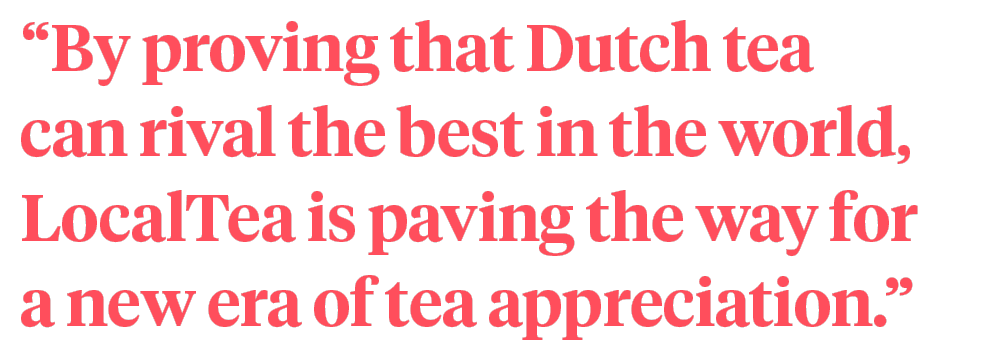
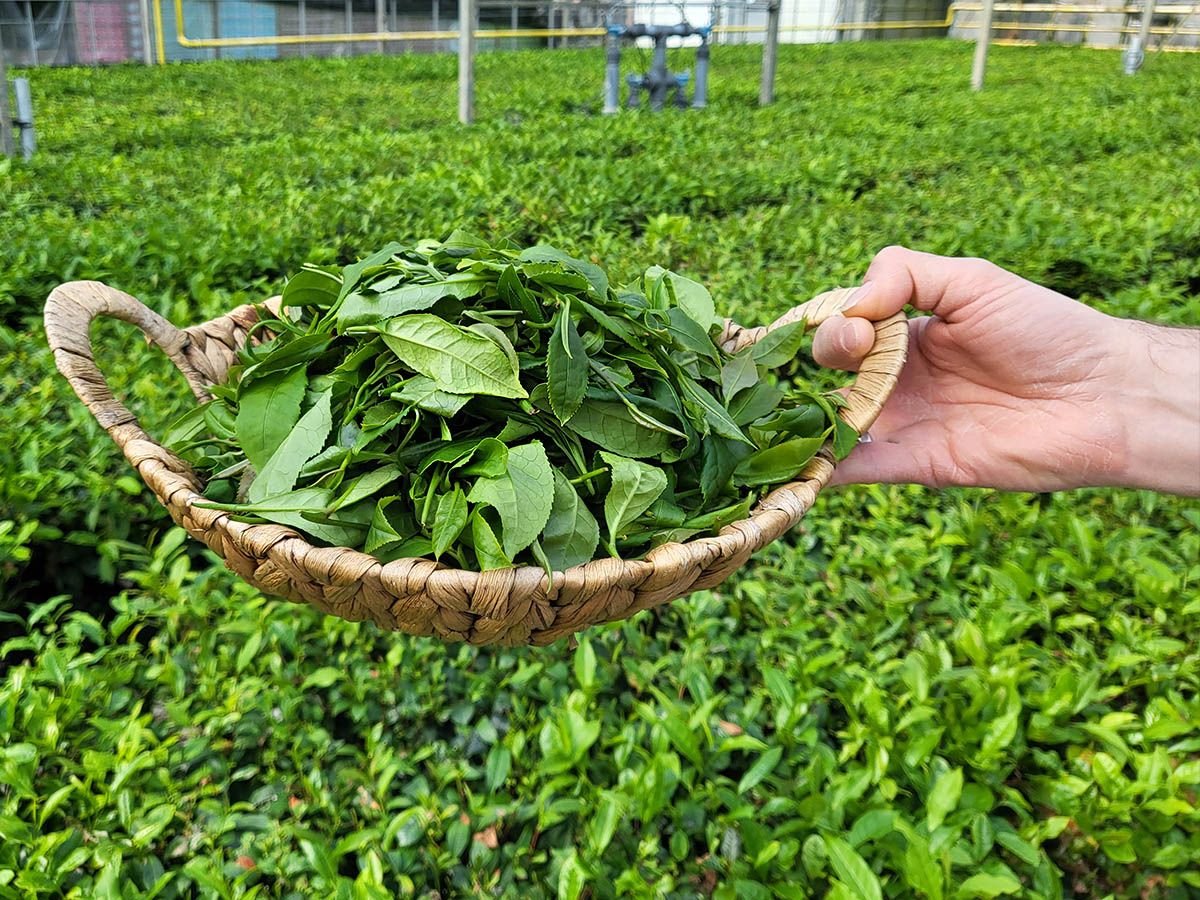
Photo by Marcel de Romph
Besides simply growing tea plants in an unexpected climate — with the ever-changing Dutch weather — what sets LocalTea apart is its commitment to producing organic Dutch tea. The lush, fertile soil of the Netherlands provides the perfect canvas for cultivating tea plants with minimal intervention. The farm's dedication to sustainable and organic farming practices has not only created exceptional tea but also contributed to the preservation of the local ecosystem.
A Tea for Every Palate
Did you know that all 200 types of tea are made from the same plant? So to vary in flavors is up to the tea producer. LocalTea boasts an impressive variety of teas to cater to different tastes and preferences. From delicate white teas with floral notes to robust black teas with a rich, malty flavor, there's something for everyone. Each tea is carefully handpicked, processed, and packaged with the utmost care, ensuring that you get the freshest and most flavorful cup of tea every time.

The Farming Process
Walking through the tea fields of LocalTea is a sensory experience like no other. The gentle rustling of tea leaves in the breeze and the aroma of fresh tea leaves surround you as you explore the farm. It smells like walking in the tropics, do you know that typical scent? The cultivation process here is a harmonious dance between nature and human hands. The top leaves are the best, so they are quite literally the cream of the crop. These are the leaves that are constantly harvested to create the finest blends. The leaves lower on the plant are just there to support the plant in its growth.
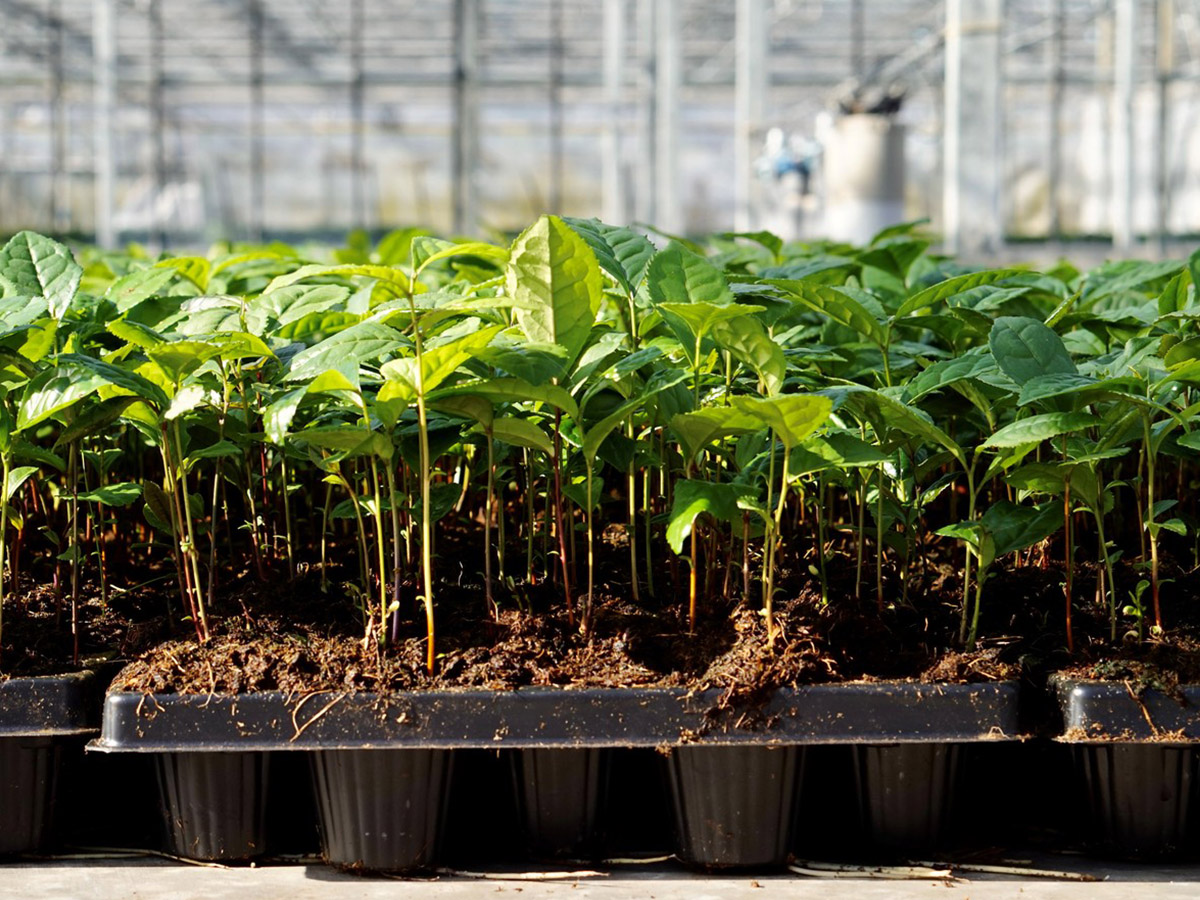
Sustainable Practices
LocalTea's commitment to sustainability is unwavering. The farm employs eco-friendly practices, such as natural pest control and responsible water management, to minimize its environmental footprint. These efforts benefit the farm and contribute to the overall health of the surrounding environment. Visitors, including 'tea tourists' are welcome to experience this tea nursery. LocalTea offers guided tours of the tea fields and production facilities. It's a chance to witness firsthand the dedication and hard work that goes into every cup. The farm also hosts tea-tasting sessions, allowing guests to savor the distinct flavors of Dutch tea.
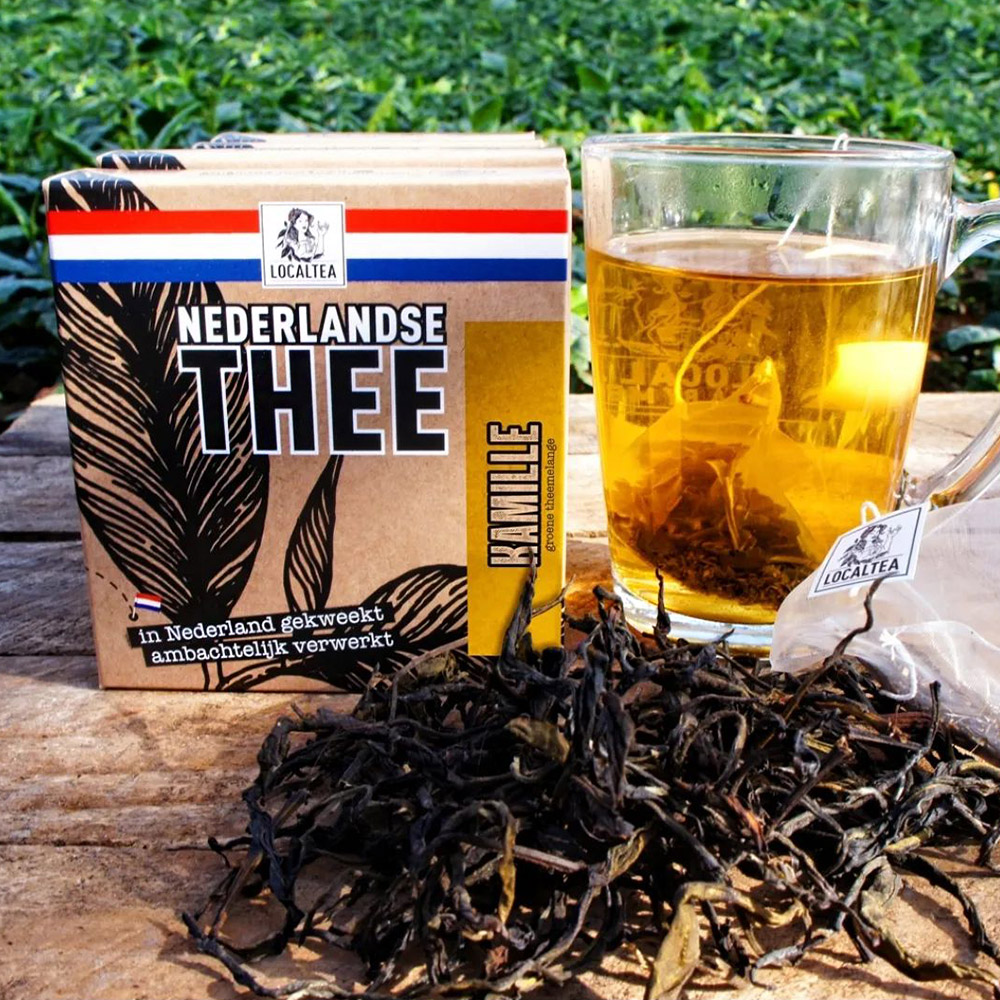
A Tea Revolution
The cold-grown tea from Dutch soil is a great success. LocalTea is the first active tea plantation in Europe, a genuine tea revolution! The company has about 1.75 million tea plants, spread over three locations. Sustainable Dutch-grown produce is being widely adopted by retail chains and the catering industry.
The pioneering role that LocalTea plays cannot be underestimated. This is not just a tea farm; it's a catalyst for change in the world of tea production. By proving that Dutch tea can rival the best in the world, LocalTea is paving the way for a new era of tea appreciation. The farm's dedication to organic practices and sustainability serves as an inspiration to (tea) growers everywhere.
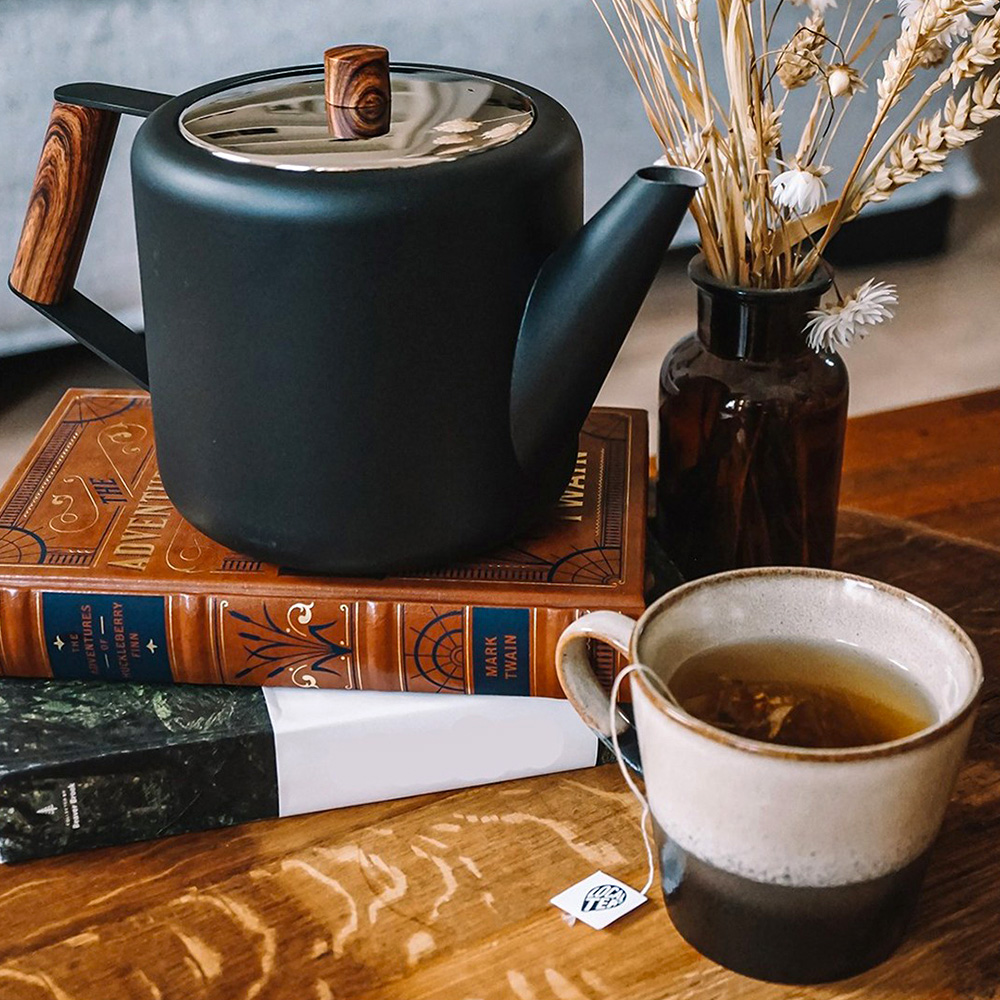
For consumers who combine the love for tea with attention toward sustainability, LocalTea is a perfect example of willing to change is able to change. It's a place where innovation and sustainability come together to create something truly remarkable. Whether you're a tea enthusiast, a nature lover, or simply curious, a visit to LocalTea is an experience that will leave you with a newfound appreciation for Dutch tea and the remarkable journey that brings it to your teacup.
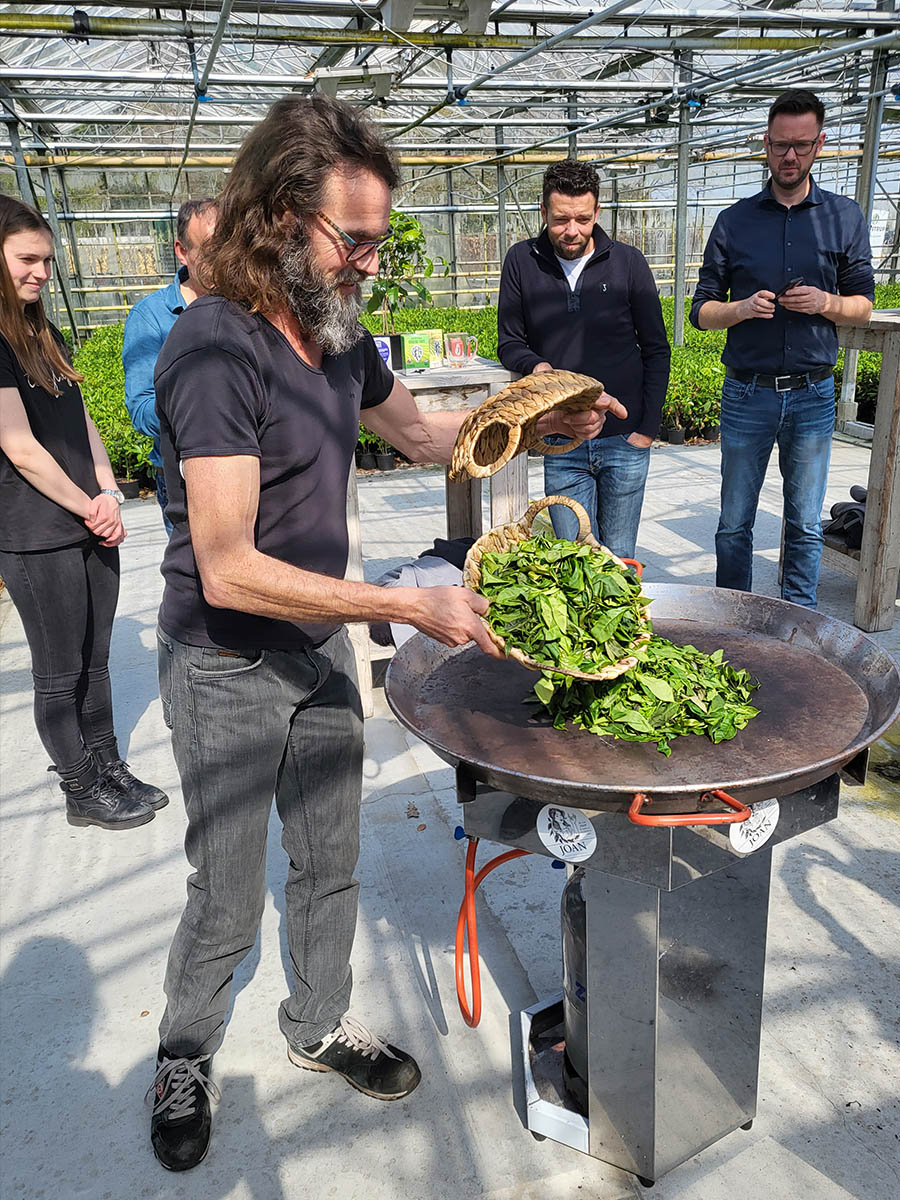
Photo by Marcel de Romph
LocalTea is a shining example of how tea farming can transcend borders and expectations. With a dedication to quality and sustainability, this Dutch tea farm has firmly planted itself on the tea European map. So, why not savor a cup of LocalTea and experience the Dutch tea revolution for yourself? Cheers to the future of tea, where tradition and innovation coexist harmoniously. One cup of tea at a time.
All photos by @localtea_nl, unless otherwise noted.

